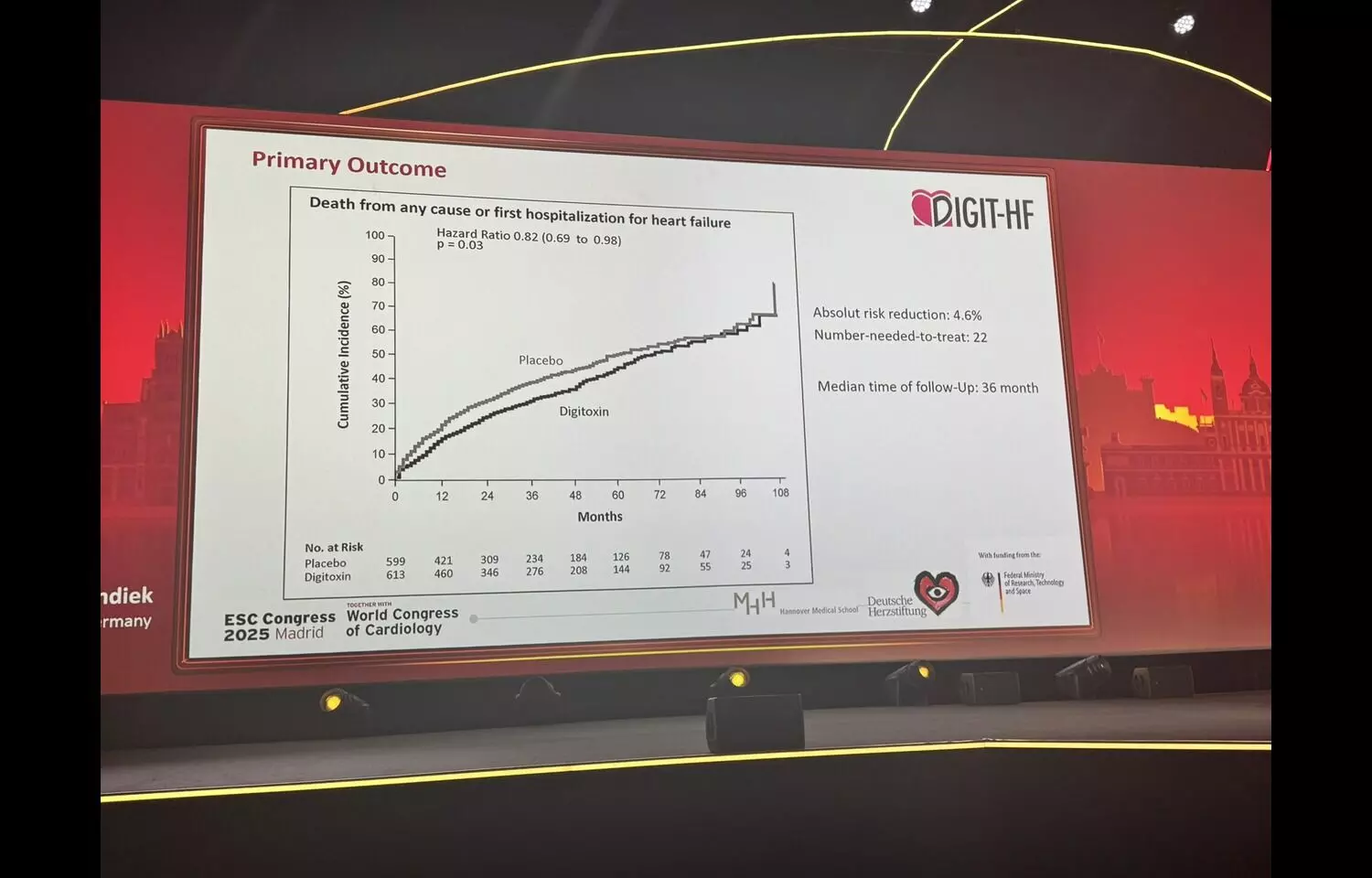Digitoxin Reduces Mortality and Hospitalizations in Heart Failure with Reduced Ejection Fraction: NEJM
- byDoctor News Daily Team
- 17 September, 2025
- 0 Comments
- 0 Mins

Heart failure with reduced ejection fraction (HFrEF) remains a leading cause of morbidity and mortality worldwide, despite advances in guideline-directed medical therapy. Novel or adjunctive pharmacologic interventions are continuously explored to improve clinical outcomes, including reductions in hospitalizations and mortality. Digitoxin, a cardiac glycoside, has long been used for heart failure and atrial arrhythmias, but its impact on contemporary HFrEF management has required further evaluation in well-controlled studies. A recent randomized, double-blind trial assessed the efficacy and safety of digitoxin in patients with HFrEF who were already receiving guideline-recommended therapies, including beta-blockers, ACE inhibitors or ARNI, and mineralocorticoid receptor antagonists. The primary endpoint was a composite of all-cause death or hospitalization for worsening heart failure. Secondary outcomes included cardiovascular mortality, heart failure hospitalizations alone, and safety parameters such as arrhythmias or digoxin-related adverse events. Results demonstrated that digitoxin significantly reduced the risk of the composite endpoint compared to placebo, primarily driven by a reduction in hospitalizations for worsening heart failure. Mortality trends favored digitoxin, though statistical significance for all-cause death alone was not reached. Safety analysis indicated that digitoxin was generally well tolerated at the prescribed therapeutic doses, with no unexpected adverse events. These findings highlight digitoxin’s potential as a valuable adjunct in the contemporary management of HFrEF, particularly in patients who remain symptomatic despite optimized guideline-directed therapy. This study provides robust evidence supporting the integration of digitoxin into modern HFrEF treatment paradigms, emphasizing its benefits in reducing heart failure-related hospitalizations and contributing to improved long-term outcomes. Clinicians should, however, monitor for known glycoside-related risks, including arrhythmias and electrolyte disturbances, to ensure safe administration.
Disclaimer: This website is designed for healthcare professionals and serves solely for informational purposes.
The content provided should not be interpreted as medical advice, diagnosis, treatment recommendations, prescriptions, or endorsements of specific medical practices. It is not a replacement for professional medical consultation or the expertise of a licensed healthcare provider.
Given the ever-evolving nature of medical science, we strive to keep our information accurate and up to date. However, we do not guarantee the completeness or accuracy of the content.
If you come across any inconsistencies, please reach out to us at
admin@doctornewsdaily.com.
We do not support or endorse medical opinions, treatments, or recommendations that contradict the advice of qualified healthcare professionals.
By using this website, you agree to our
Terms of Use,
Privacy Policy, and
Advertisement Policy.
For further details, please review our
Full Disclaimer.
Recent News
Gum disease could silently cause serious brain dam...
- 03 November, 2025
Can Early-Day Fasting Significantly Boost Metaboli...
- 03 November, 2025
Delhi HC bars doctor from running medical centre d...
- 03 November, 2025
Phase III data for Gazyva/Gazyvaro show significan...
- 03 November, 2025
Daily Newsletter
Get all the top stories from Blogs to keep track.


0 Comments
Post a comment
No comments yet. Be the first to comment!